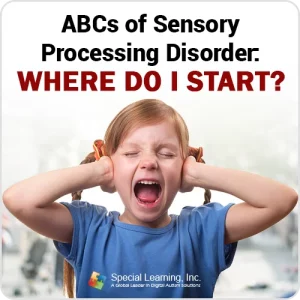Handling Outbursts and Unpleasant Behaviors
All children have temper tantrums. They scream, cry, yell and thrash about whenever they do not get what they want when they want it. Sometimes a piece of candy or a little pep talk can calm them down – and other times it takes more than a promise to get them to stop. For children with autism, outbursts of unpleasant behavior may be caused by frustration over trying to communicate what they feel or a product of a routine change.
As parents, you may experience your own frustrations and feel helpless whenever your child throws a fit and you cannot seem to make him or her stop nor understand what your child wants in the first place. Observation can help you see what causes your child’s outbursts of unpleasant behavior. Be keen and, eventually, as your child grows, you will learn to identify what triggers these tantrums and apply strategies that work to calm your child. There are several ways you can handle a tantrum:
-
- Positive reinforcement – Praising your child once a tantrum comes to a stop and after you have reprimanded him or she is a good way of telling your child which behavior is good and which is bad. Rewarding your child is another option. You may give a token or a prize for your child’s good behavior, such as a cookie or whatever it is your child was asking for. This will teach your child that in order to get something they want, they must behave well in return.
- Ignoring – Children sometimes throw a tantrum just for attention. In this situation, you can ignore your child. Do not talk, correct, hold or yell at your child (but always make sure your child is safe) to teach your child that getting attention by displaying unpleasant behavior will not be tolerated (Heffner).
- Never punish – Spanking a child who is behaving badly is not a therapeutic way of handling a behavior outburst. Remember that your child with autism may be throwing a tantrum because he or she is not able to convey something verbally; therefore, there is no reason for you to punish.
- Assure your child that you understand – Guarantee your child that you know he or she is trying to say something but make it clear that it is necessary to use words and communicate properly in order for you to understand.
Handling tantrums of a child with autism is not easy. Keep in mind that you can always ask for help on how to deal with tantrums from professionals, such as your child’s school counselor, teacher, or even your child’s therapist. With a little extra patience and a keen eye for observation, your child’s outbursts of unpleasant behavior are something that you and your family will be able to handle.
References:
Heffner, G.J. (n.d.). Managing tantrums in autistic children. Retrieved April 24, 2011, from http://www.autism-help.org/behavior-tantrums-aspergers.htm
Copyright © by Special Learning Inc. All right reserved.
No part of this article may be reproduced in any manner whatsoever without written permission except in the case of brief quotations embodied in critical articles and reviews. For information, contact Special Learning Inc., at: contact@special-learning.com












